Kampala – Makerere University School of Public Health (MakSPH) marked its 70th anniversary with a celebratory event in Kampala, bringing together dignitaries including State Minister for Primary Health Care Hon. Margaret Muhanga, Makerere University Vice Chancellor Professor Barnabas Nawangwe, MakSPH Dean Professor Rhoda Wanyenze, and Ministry of Health Officials. The World Health Organization (WHO) Uganda reaffirmed its commitment to supporting MakSPH’s work in advancing public health.
Hon. Muhanga applauded MakSPH’s transition to stand-alone status within Makerere University, which is expected to enhance its impact. She highlighted the school’s vital role in epidemic response, health systems strengthening, and policy development. “MakSPH has been pivotal in documenting progress towards eliminating diseases like HIV and TB,” she remarked.
Since its inception in 1954, MakSPH has evolved into a leading institution in public health education and research in Africa. Professor Nawangwe praised the school for contributing nearly 50% of Makerere University’s research output and shaping Uganda’s health policies.
Professor Wanyenze highlighted the school’s milestones, from groundbreaking research initiatives to impactful community engagements. She emphasized the need for continued innovation to address emerging challenges such as non-communicable diseases and climate change.
WHO Uganda Country Representative, Dr Charles Njuguna, lauded the longstanding collaboration with MakSPH. Over the past five years, this partnership has spearheaded nearly 50 projects, including the Uganda Non-Communicable Diseases Risk Factors STEPS Survey and the National Immunization Strategy. “MakSPH exemplifies how academia and international organizations can work together to solve global health challenges,” he remarked.
Dr Njuguna encouraged MakSPH to pursue status as a WHO Collaborating Center, which would significantly enhance its global influence. Globally, WHO Collaborating Centers play a pivotal role in advancing disease prevention and health systems research. With only 27 such centers in Africa, establishing one in Uganda would mark a significant milestone.
Graduates from MakSPH are among WHO staff, contributing significantly to the organization’s work in various technical areas, both in the field and at the office, across different clusters in the country office and the three levels of the organization. Their efforts have been instrumental in WHO’s mission to promote health, keep the world safe and serve the vulnerable.
Mackline Asiimwe, a field epidemiologist deployed by WHO to combat mpox outbreaks in Uganda’s Nakasongola and Pallisa districts, credits MakSPH’s rigorous training and diverse competencies in epidemiology and research for her success.
After earning a Master’s in Health Services and Research, Asiimwe completed a WHO-supported, US Government-funded fellowship in field epidemiology, equipping her to excel in public health. “The skills I gained at MakSPH enable me to respond effectively to public health emergencies,” she noted.
The event also highlighted the inspiring stories of MakSPH alumni who have excelled in their education and careers, embodying the school’s mission to produce transformational leaders and foster excellence in innovation.
Among them was Ruth Mubeezi, whose journey took her from being a student at MakSPH to serving as a faculty member in Public Health. Reflecting on her experience, she said, “MakSPH instilled in me a deep commitment to improving health outcomes, with a focus on advancing environmental health.”
Sam Ongom, currently a Monitoring, Evaluation, and Research Advisor at Jhpiego Uganda, also credited the school for shaping his path to community impact. “I owe a great deal to my mentor, Assoc. Prof. Peter Waiswa, whose guidance emphasized the value of pursuing an MPH in a rapidly evolving world,” he shared.
The celebrations concluded with a call to action for continued and strengthened partnerships and innovation. “The next 70 years hold even greater promise as we strive to shape a healthier, more equitable future for Uganda and beyond,” said Professor Wanyenze.
This momentous occasion of celebrating 70 years was also used to officially launch MaKSPH’s strategic plan for the next five years (2025-2030) under the theme, “Shaping Health, Empowering the Future”.
As MakSPH celebrates 70 years, its leadership in research and training remains critical in addressing Uganda’s health challenges. With WHO’s support, this collaboration continues to drive capacity building, evidence-based policymaking, and community health improvements, and laying a strong foundation for sustainable public health interventions.

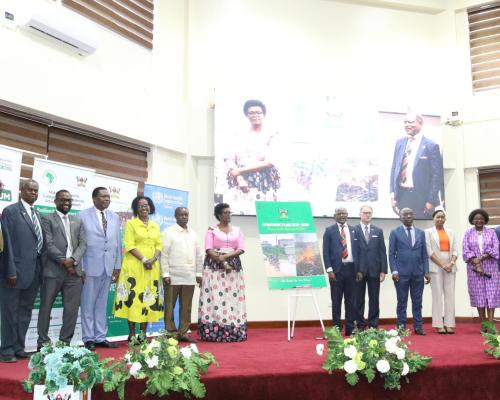

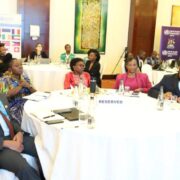
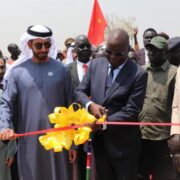
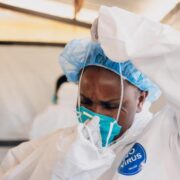
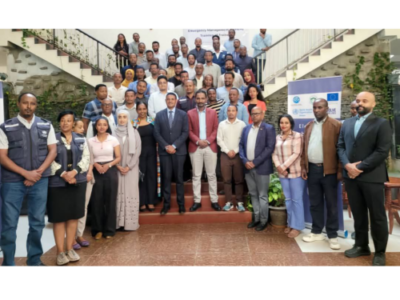
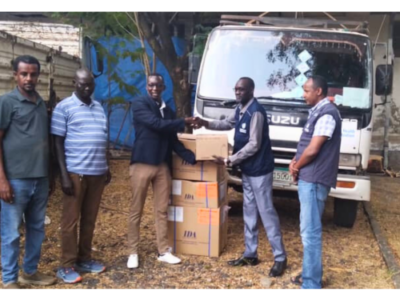
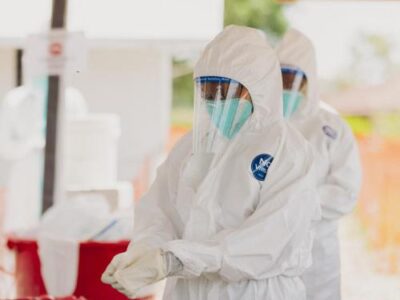


Comments